实验二
实验一
代码:
#include <stdio.h> #include <stdlib.h> #include <time.h> #define N 5 #define R1 586 #define R2 701 int main() { int number; int i; srand( time(0) ); for(i = 0; i < N; ++i) { number = rand() % (R2 - R1 + 1) + R1; printf("20228330%04d\n", number); } system("pause"); return 0; }
结果:
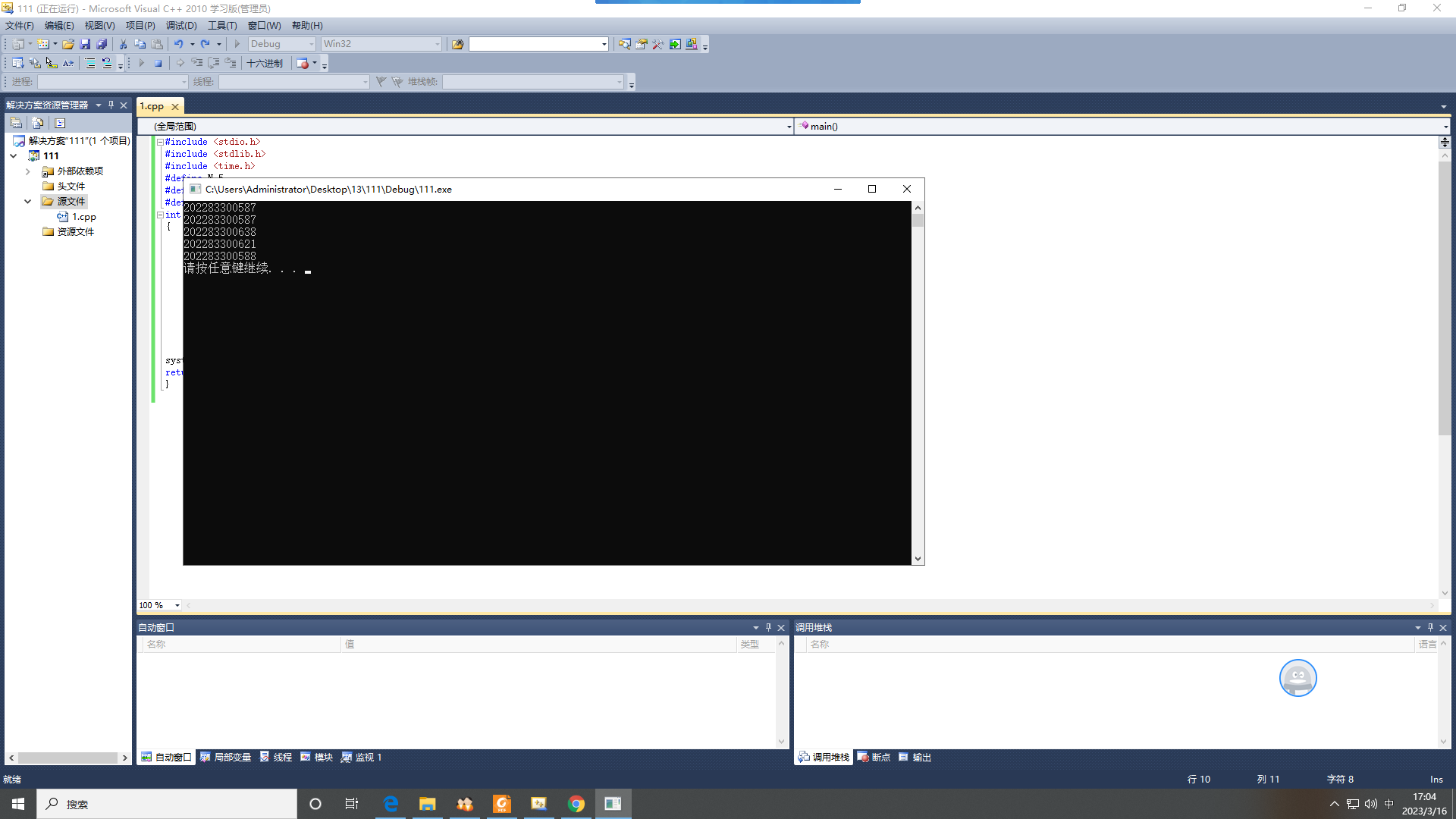
第18行的作用是,生成一个R2-R1+1到R2+1之间的随机数
这个程序的功能是输出以20228330开头的12位随机数
实验2
#include<stdio.h>
#include <stdlib.h>
int main()
{
double x, y;
char c1, c2, c3;
int a1, a2, a3;
scanf("%d,%d,%d", &a1, &a2, &a3);
printf("a1 = %d, a2 = %d, a3 = %d\n", a1,a2,a3);
getchar();
scanf("%c,%c,%c", &c1,&c2,&c3);
printf("c1=%c,c2=%c,c3=%c\n",c1,c2,c3);
scanf("%lf,%lf", &x,&y);
printf("x=%lf,y=%lf\n",x,y);
system("pause");
return 0;
}
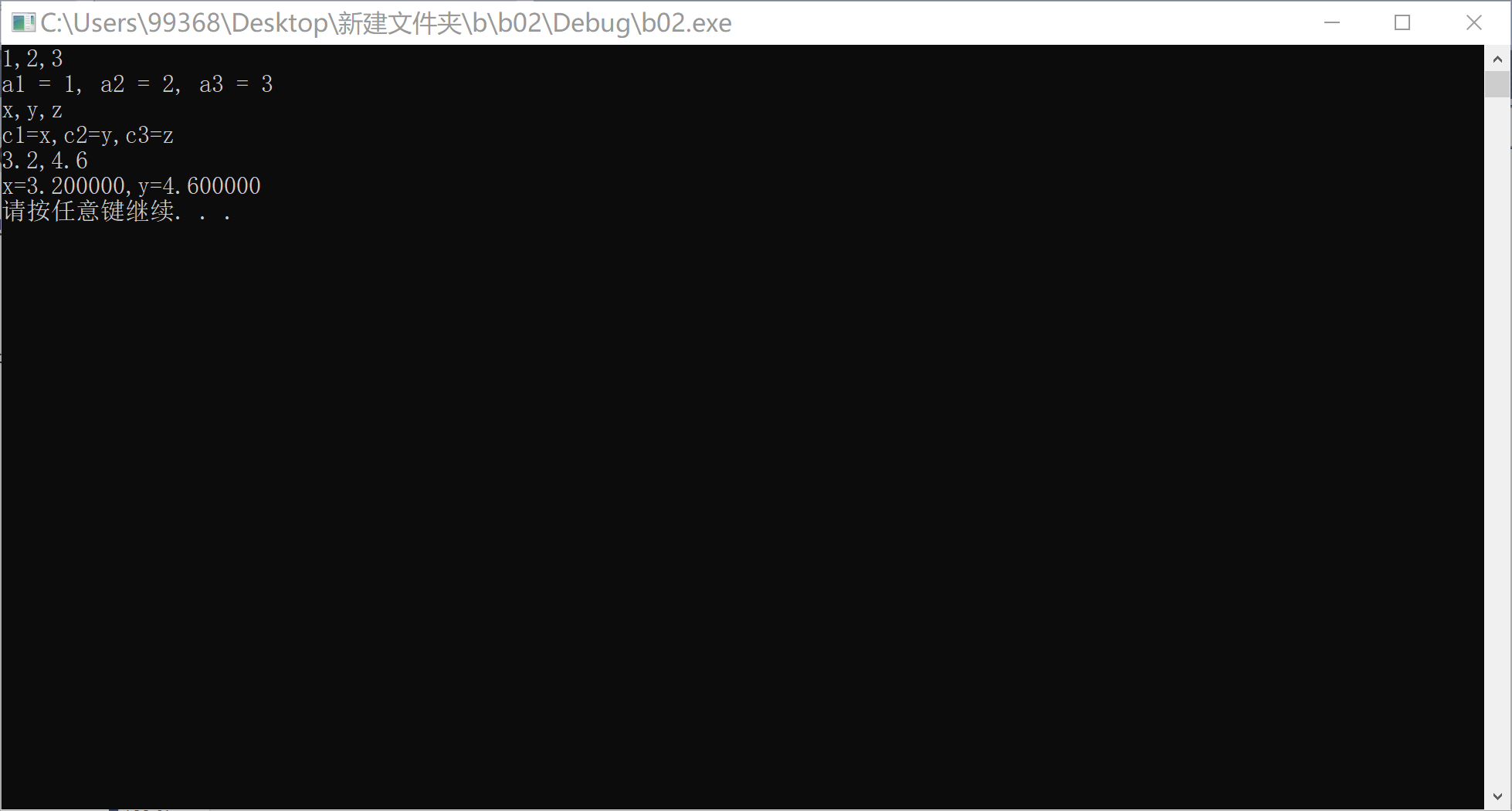
实验3
#include <stdio.h> #include <math.h> #include <stdlib.h> int main() { double x, ans; scanf("%lf", &x); ans=(9/5)*x+32; printf("摄氏度等于%.2f时,华氏度F=%.2f\n", x, ans); system("pause"); return 0; }
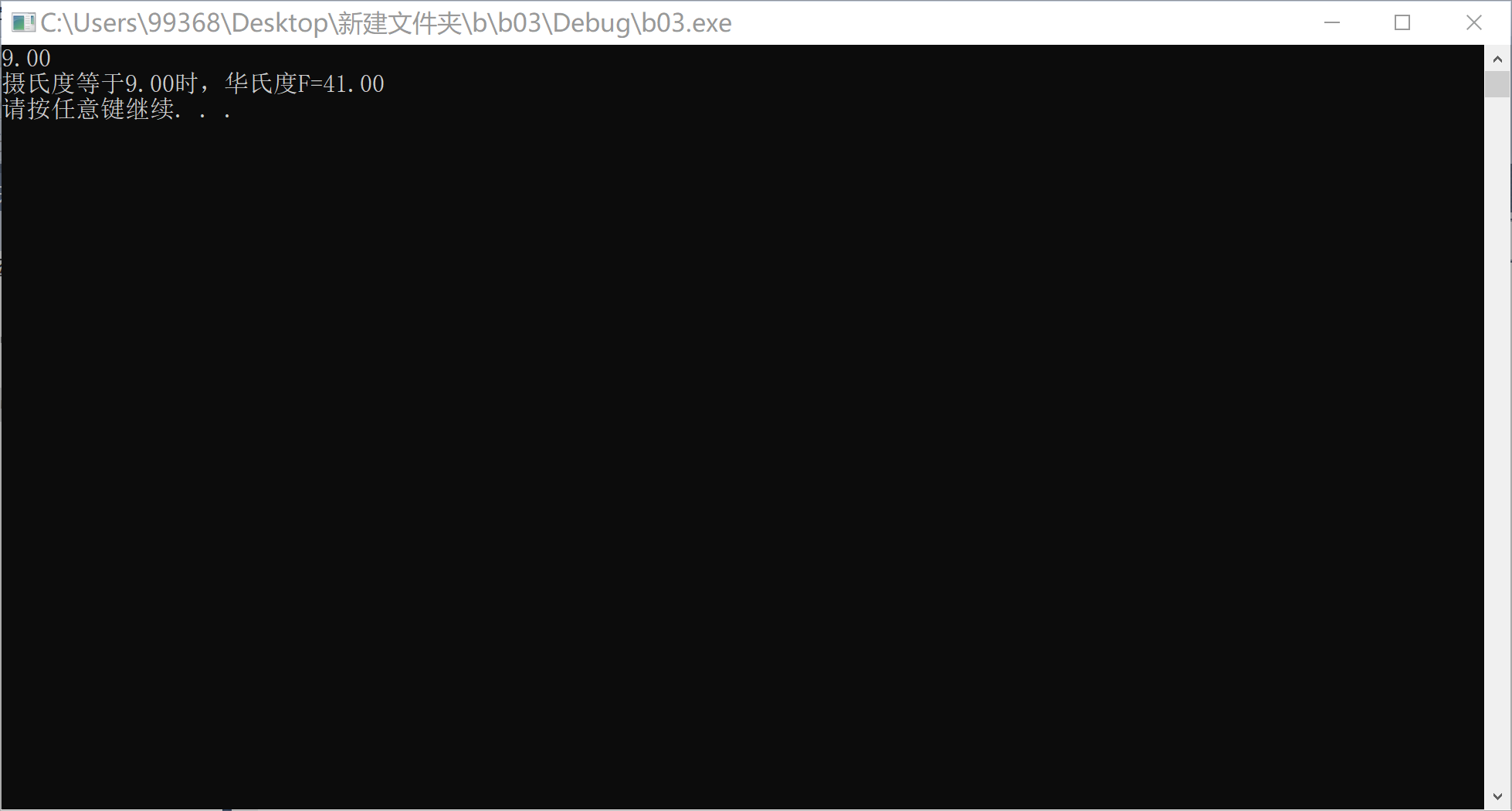
实验5
#include<stdio.h>
#include <stdlib.h>
#include<math.h>
#include <time.h>
int main()
{
int n,a;
n=rand()%30+1;
srand(time(0));
printf("猜猜2023年4月哪一天是你的幸运日)\n");
scanf("%d",&a);
if(a==n)
printf("猜对啦");
else
if(a>n)
printf("猜的日期晚啦,你的幸运日已经过了\n");
else
printf("猜的日期早啦,你的幸运日还没到呢\n");
scanf("%d",&a);
if(a==n)
printf("猜对啦");
else
if(a>n)
printf("猜的日期晚啦,你的幸运日已经过了\n");
else
printf("猜的日期早啦,你的幸运日还没到呢\n");
scanf("%d",&a);
if(a==n)
printf("猜对啦");
else
printf("不能再猜啦,悄悄告诉你,你的幸运日是%d",n);
system("pause");
return 0;
}
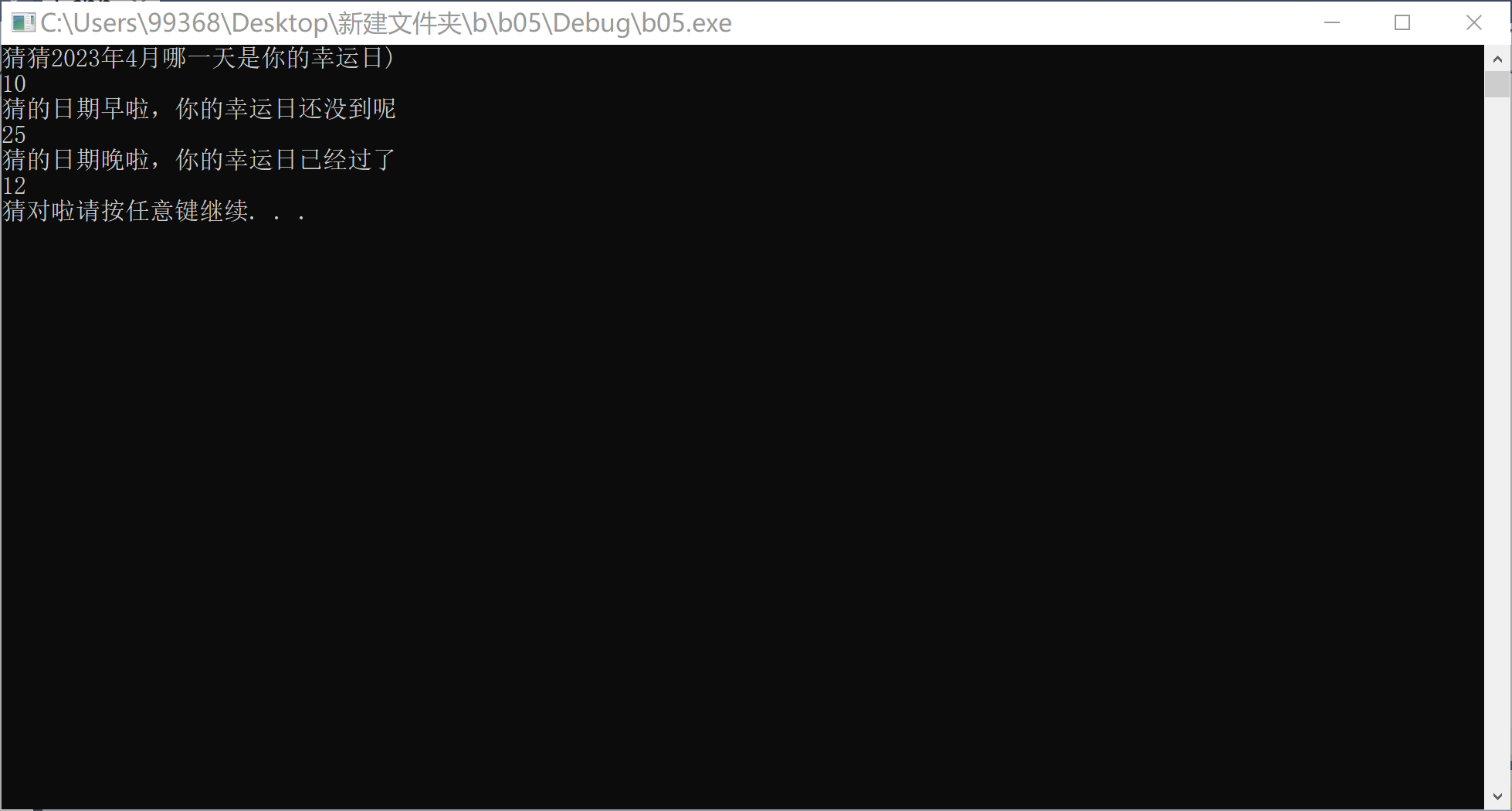
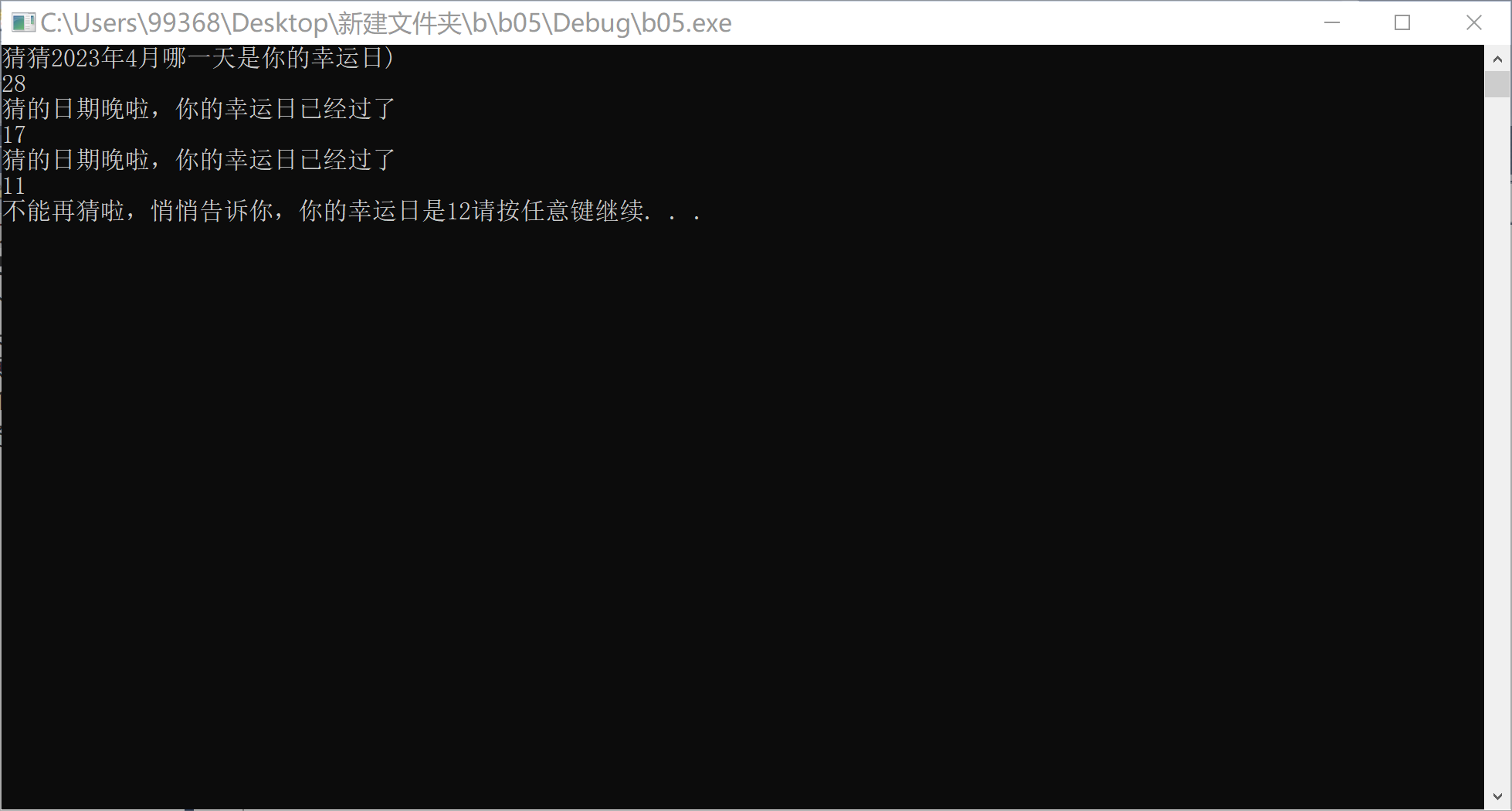
实验6
#include<stdio.h>
#include <stdlib.h>
int main()
{
printf("1*1= 1\n");
printf("1*2= 2 2*2= 4\n");
printf("1*3= 3 2*3= 6 3*3= 9\n");
printf("1*4= 4 2*4= 8 3*4=12 4*4=16\n");
printf("1*5= 5 2*5=10 3*5=15 4*5=20 5*5=25\n");
printf("1*6= 6 2*6=12 3*6=18 4*6=24 5*6=30 6*6=36\n");
printf("1*7= 7 2*7=14 3*7=21 4*7=28 5*7=35 6*7=42 7*7=49\n");
printf("1*8= 8 2*8=16 3*8=24 4*8=32 5*8=40 6*8=48 7*8=56 8*8=64\n");
printf("1*9= 9 2*9=18 3*9=27 4*9=36 5*9=45 6*9=54 7*9=63 8*9=72 9*9=81\n");
system("pause");
return 0;
}
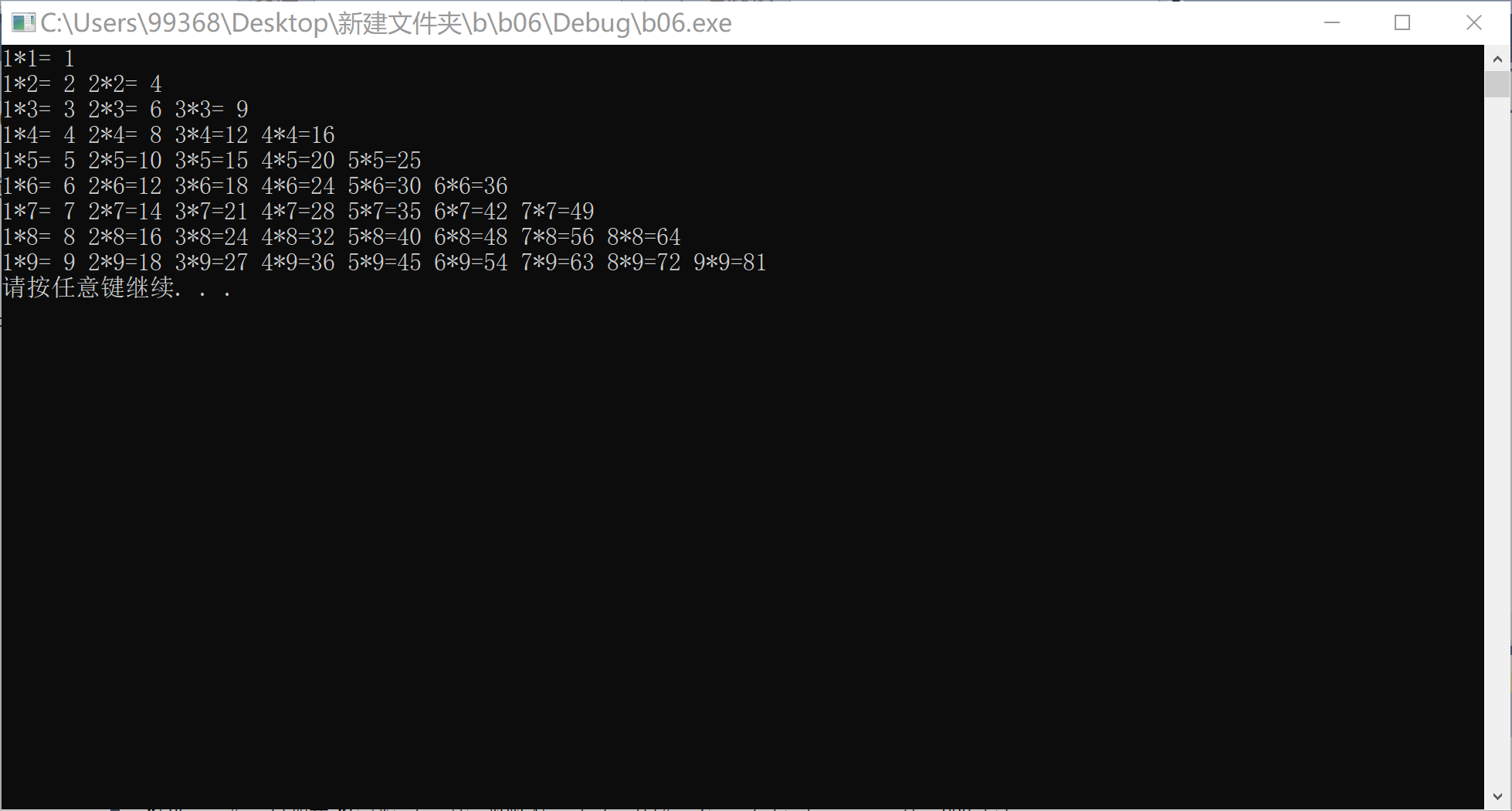
实验7
#include<stdio.h>
#include <stdlib.h>
int main()
{
int i,j;
int n,m,l;
m=2*n-1;
l=n;
printf("input:");
scanf("%d",&n);
for(i=1;i<=n;n--)
{
m=2*n-1;
for(j=1;j<=m;j++)
{
printf(" 0\t");
}
printf("\n");
for(j=1;j<=m;j++)
{
printf("<H>\t");
}
printf("\n");
for(j=1;j<=m;j++)
{
printf("I I\t");
}
printf("\n");
}
system("pause");
return 0;
}

第1行有2*4-1个小人
第i行有(n-i)*2-1个小人


